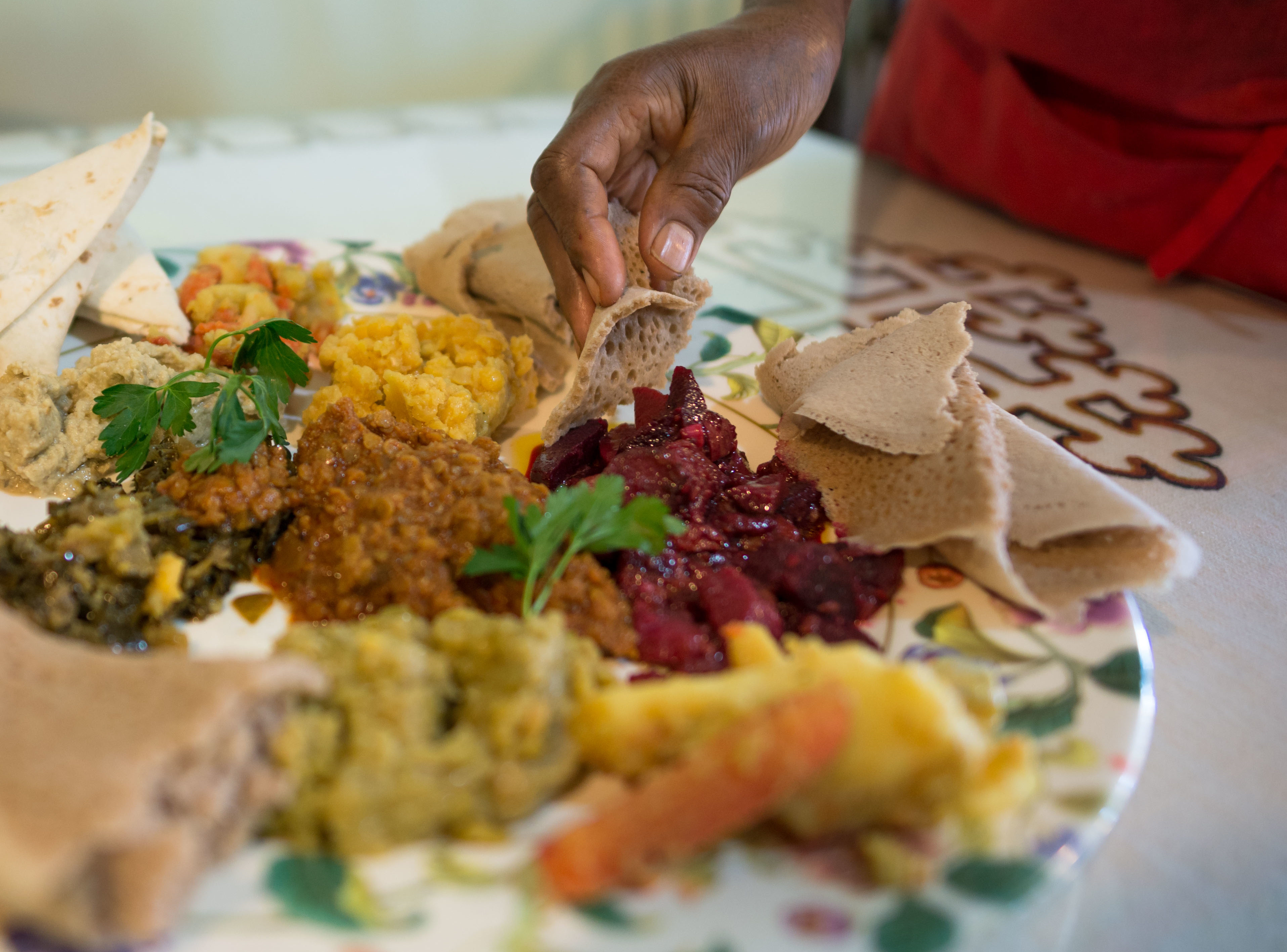Denver is a great city to enjoy some authentic Ethiopian cuisine. It is estimated that the Mile High is home to approximately 30,000 people hailing from the African nation. Despite the large population and the many purveyors of truly remarkable cuisine — some having been in business for more than 20 years — many of these establishments have still managed to slip under the radar.
The apparent differences as to how the meal is consumed can be daunting for the uninitiated. When eaten in the traditional fashion, a meal is consumed not with silverware, but with the delicious foundation of the food at large, injera bread. Injera is spongy sourdough-like flatbread that lines the bottom of the plate on which the meal is presented, with more rolled up and served on the side. Diners tear off pieces to scoop up the various meat and vegetable stews served side by side in one massive and enticing spread. The process is simple, satisfying and delicious. If the lack of utensils scares you, do yourself a favor and try it anyway.
The restaurants all share a fair amount of traditional menu items, each offering platters that allow guests to sample a variety of dishes at once. Berbere, turmeric and a wide array of other spices contribute to making the meal a filling and flavorful feast for meat eaters and vegetarians alike. The food is delicious, healthy and affordable — the locations below deserve recognition for crafting some of the best dining Denver has to offer.
Queen of Sheba
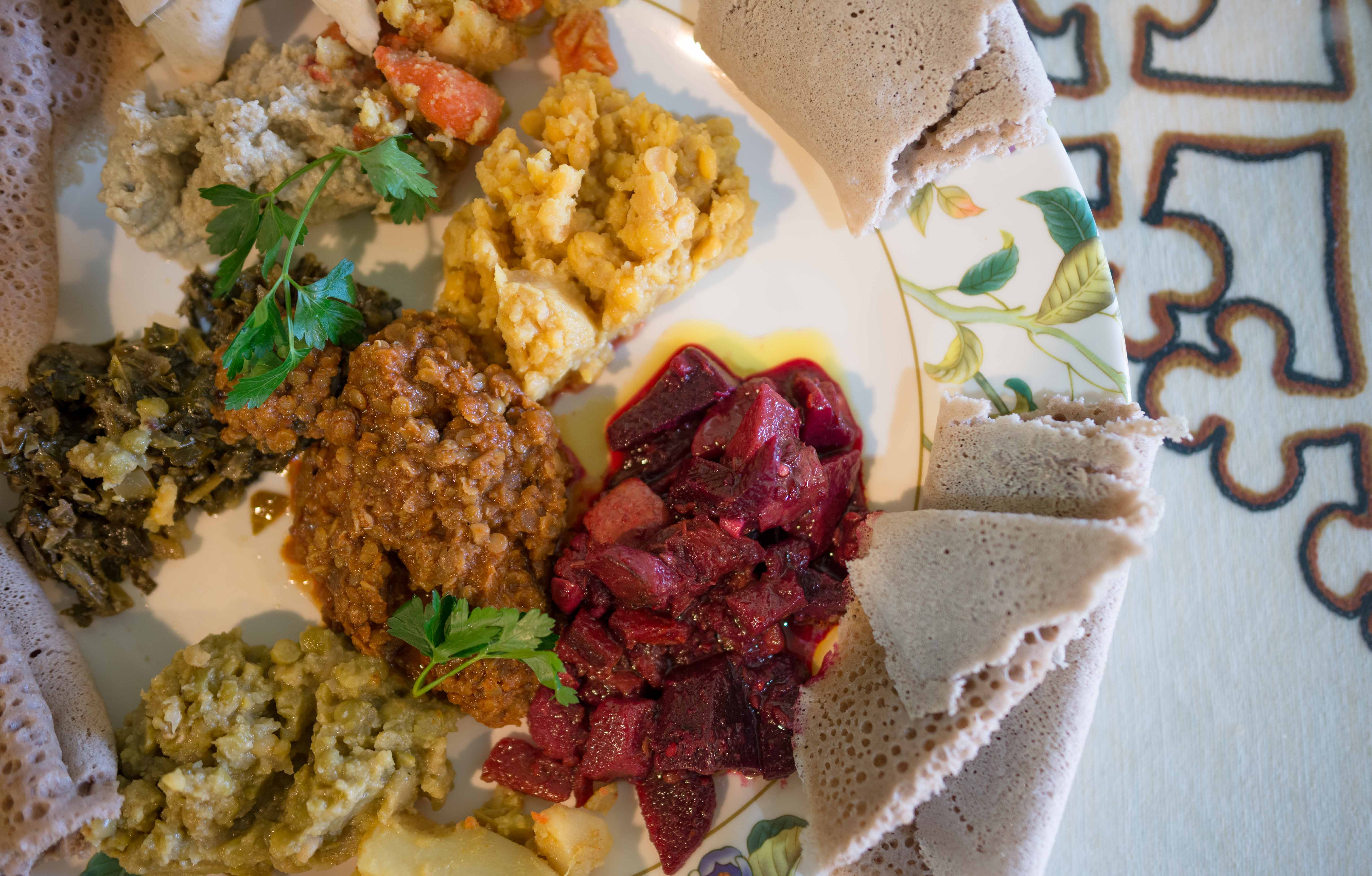
Where: 7225 East Colfax Ave., Denver 303-399-9442.
Several miles East of Colorado Boulevard, beneath a decaying and nearly unreadable sign lies one of Colfax’s tastiest locales, Queen of Sheba. The space is petite, the decorations sparse and tasteful. Hung on one wall is a map of Africa with a star marked over Addis Ababa, the capital of Ethiopia — the city from which the owner emigrated years ago. The usual suspects are all present — lentils, cabbage, potatoes, collard greens, chicken, beef and lamb served mild to spicy. The meat combo for two ($26.99) is a filling combination of seasoned chicken, key yesiga wot (a medium hot stewed beef dish), keye tibbs (beef shish kabob with jalapeños, onions, tomato and berbere), yatakelt wot (a stew of cabbage, potatoes and carrots) and miser wot (spicy red lentils). To wash it all down wine, beer and tej ($3.99 a glass $15.99 a bottle), a customary Ethiopian honey wine, are all available.
The Ethiopian Restaurant
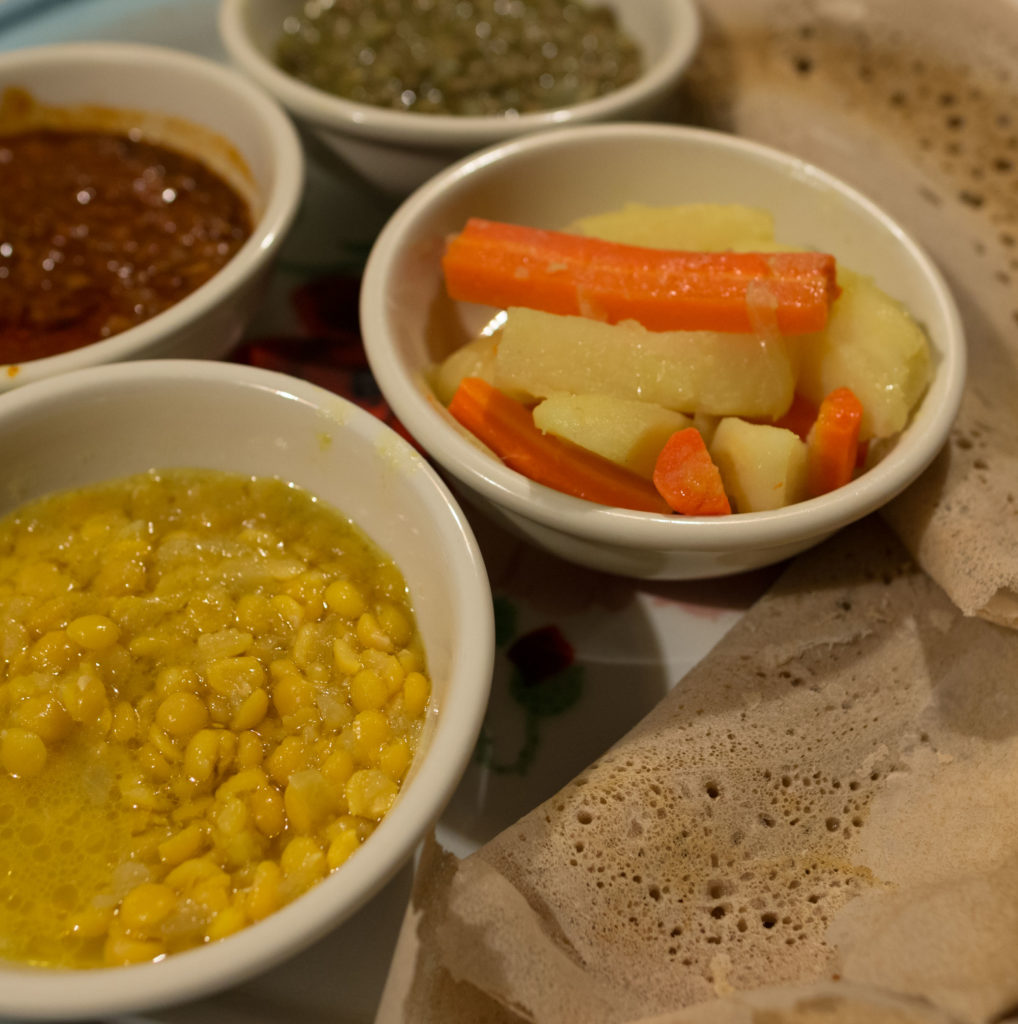
Where: 2816 East Colfax Ave., Denver. 303-322-5939.
Like the Queen of Sheba, the Ethiopian Restaurant (yes, that is the name) is a small affair — a few people carefully prepare the food with the pacing of a home kitchen. When the meal is ready, the proprietor will bring out a platter lined with injera, accompanied by another tray topped with each tantalizing item in its own dish. He then ceremoniously pours each stew onto the plate with a method and grace that indicate a great deal of appreciation for the history and cultural significance of the cuisine. The vegetarian special ($9.95) is miser wot, yater alicha (yellow split peas with onions and garlic) and tekel gomen (collard greens sautéed with onions and jalapeños). The special tibs ($13.95) is beef sautéed with onions, finely sliced jalapeños and spiced butter. A side of denich alicha ($3.50) (potatoes, carrots and onions cooked in clarified butter and spices) rounded out the meal. Ordering a combination platter is easy, but if you know what you like building your own lavish dinner can be tremendously satisfying.
Abyssinia
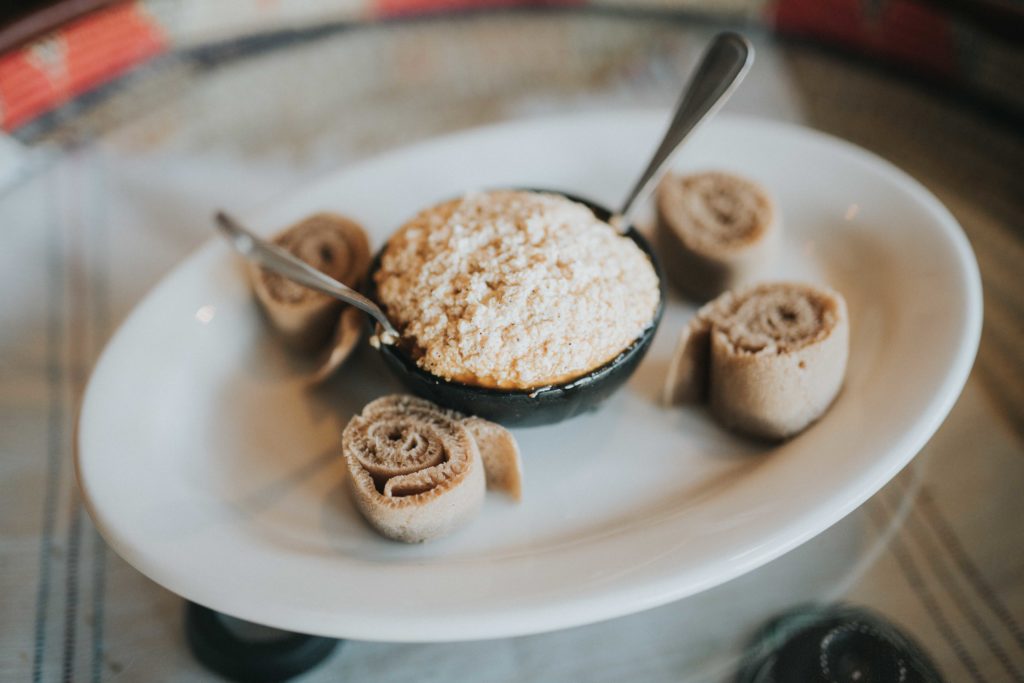
Where: 4116 East Colfax Ave., Denver. 303-316-8830.
Opened in 1995, Abyssinia is yet another Colfax institution delivering top-notch cuisine. While the injera-based main course is the definitive staple of an Ethiopian meal it would be utter sacrilege to ignore the excellent assortment of appetizers. The selection of entrees here is robust — meat, vegetables and fish are all present. However, it is the ayib bemitmita ($6.75) that really stole the show. Ayib is a house-made cottage cheese that only vaguely resembles its Western counterpart. Mixed with chili powder and clarified butter then served in a small bowl with a side of injera, the cheese is a perfect snack for two. The veggie sambusa ($2.75) is a puff pastry stuffed with well-spiced lentils — the result is flavorful without being hot, the crunchy dough a perfect golden brown.
Axum
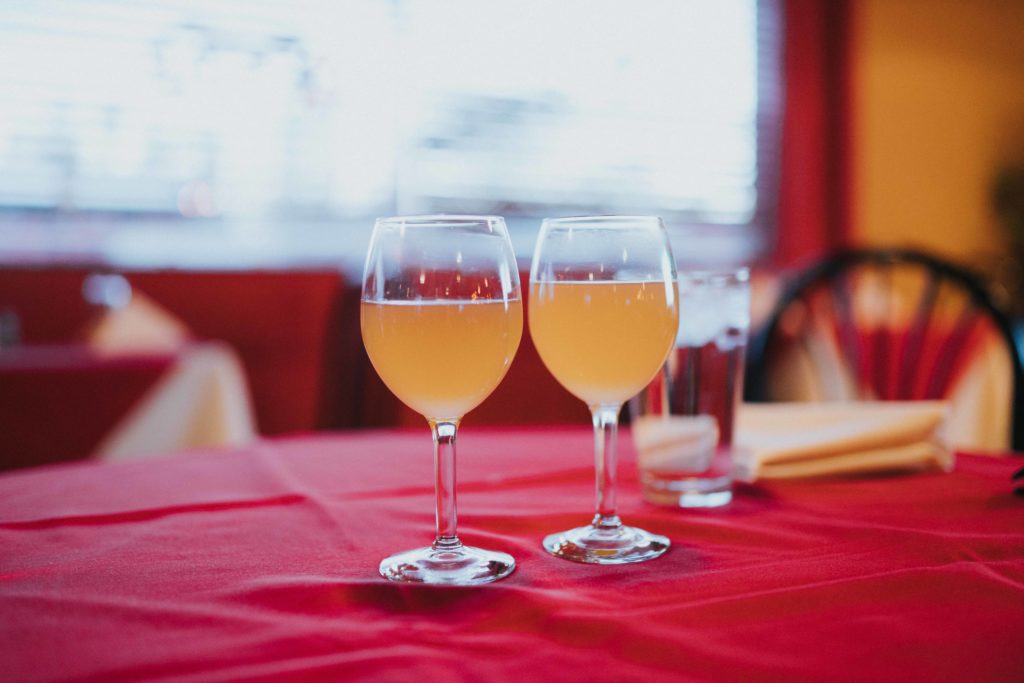
Where: 5501 East Colfax Ave., Denver. 303-329-6139.
If you don’t know what you are looking for, Axum may be hard to find. Despite the stand-alone building’s nondescript exterior, the interior is both highly evocative and welcoming. Bright red walls and matching table cloths give the large space a delightful intensity — the bar looking straight out of a 1950’s noir. While the other four locations on the list serve lunch and dinner, Axum also serves breakfast from 9 a.m-12 p.m. Consisting of various sandwiches, egg dishes, yogurt and French bread, the comprehensive menu adds yet another dimension to the already wide scope of Ethiopian cuisine. For dinner, we opted for the gored gored ($13.50), a dish combining tender cubed beef with spicy awaze sauce, cardamom, a dash of red wine and herbal butter. If the heat is a problem, the tej ($5 a glass, $15 a bottle) is an appropriate way to mitigate the spice.
The Nile
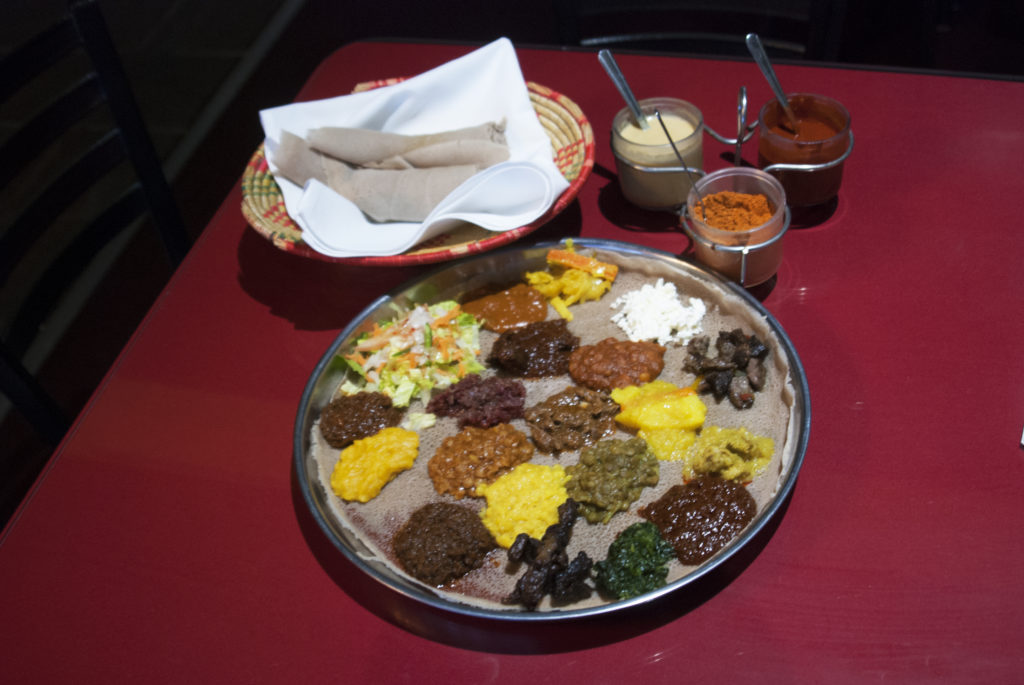
Where: 1951 South Havana St., Aurora. 720-748-0239.
If trying a great deal of dishes all at once is your style, the Nile is the place. The Nile combination ($14.99) bills itself as a sampling of all the items on the menu — a fairly audacious claim considering the thirty-nine listed dishes. The platter arrived sporting 21 different delicacies — each four to five bites strong. Served with injera, spicy mustard, hot sauce and chili powder the meal can be enjoyed as hot as you desire. Everything was delightful with particular standouts in the quanta firfir (beef jerky fried with berbere, onions, red peppers and spiced butter) and shiro wat (imported lentils seasoned with fresh garlic, berbere and a blend of Ethiopian spices).





